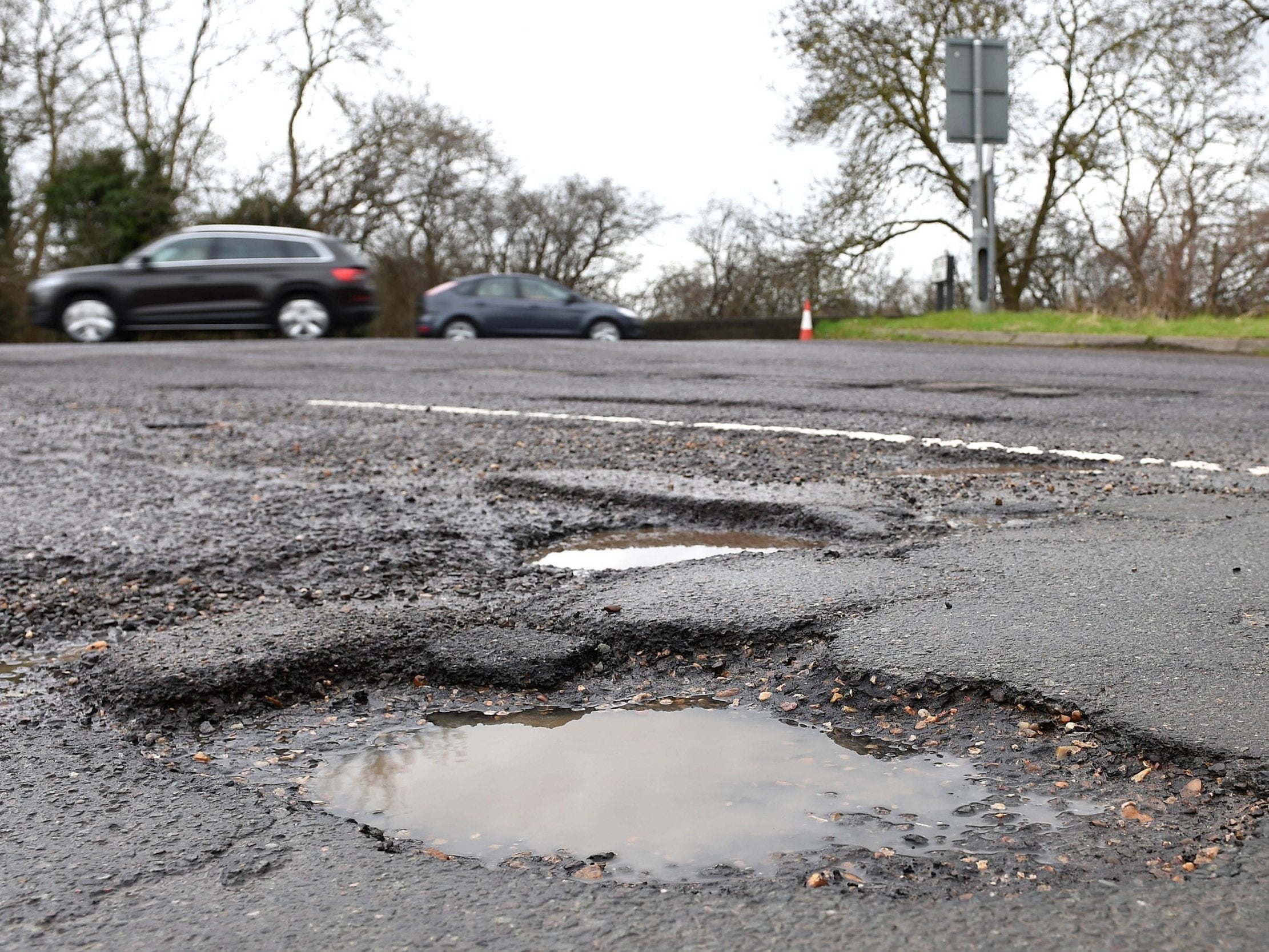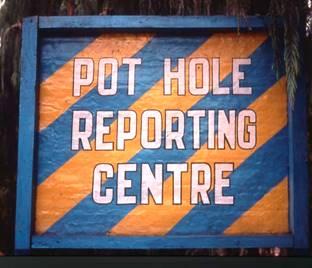Potholes could be ‘self-repairing’ in the next 30 years, say experts
‘By 2050 in our cities, you won’t have roads dug up or temporary traffic lights. Our infrastructure will learn how to repair itself’

Your support helps us to tell the story
From reproductive rights to climate change to Big Tech, The Independent is on the ground when the story is developing. Whether it's investigating the financials of Elon Musk's pro-Trump PAC or producing our latest documentary, 'The A Word', which shines a light on the American women fighting for reproductive rights, we know how important it is to parse out the facts from the messaging.
At such a critical moment in US history, we need reporters on the ground. Your donation allows us to keep sending journalists to speak to both sides of the story.
The Independent is trusted by Americans across the entire political spectrum. And unlike many other quality news outlets, we choose not to lock Americans out of our reporting and analysis with paywalls. We believe quality journalism should be available to everyone, paid for by those who can afford it.
Your support makes all the difference.Anger about the shocking state of Britain’s roads is growing. Freedom of information requests to local authorities by The Insurance Emporium revealed that reports of potholes are running at a million a year – almost two per minute.
But the crisis of cavities and craters could trigger innovations to transform the UK’s bruised infrastructure, leading to “self-repairing” roads: that is the conclusion of a Radio 4 investigation into the potholes that damage cars and injure cyclists.
Dr Mujib Rahman, a former road-repair engineer, became Britain’s pioneering “pothole doctor” in 2011.
He tells the programme of the staggering sums involved in fixing two potholes on an M25 bridge.
“The total cost in terms of closing the road and the traffic delays and everything, was half a million [pounds],” he says.
Dr Rahman has demonstrated that using infrared preheating improves the bond between the road and the repair, reducing the need for re-repairs.
Targeted and proactive road repairs in Blackpool costing £30m are expected to save £100m over 20 years – partly by cutting claims for personal injury.
Professor Phil Purnell of the School of Mechanical Engineering at Leeds University believes the disruption caused by potholes is one reason why Britain’s productivity lags behind competing economies.
“Go and drive on some European roads – it might give you a clue.”
He is working on a project to make cities “self-repairing”, with the aspiration of zero disruption from street works within three decades.
“By 2050 in our cities, you won’t have roads dug up, you won’t have temporary traffic lights, you won’t have holes in the roads with barriers around them,” says Professor Purnell.
“Our infrastructure will learn how to repair itself.”
His team at Leeds is investigating the use of drones for preventative maintenance.
“If you can seal off the small cracks on the road earlier on, then that crack won’t grow to be a pothole,” says a researcher, Dr Jason Liu.
A reconnaissance drone is used to identify and prioritise the cracks that need to be fixed. It then sends the location details to a second drone, equipped with a 3D printer which fabricates a seal to repair the road.
Just as roads will be self-repairing, the surge in autonomous vehicles may lead giant corporations such as Uber and Google to create a network of pothole-free toll roads to protect their valuable fleets.
Steve Birdsall, chief executive of the Yorkshire-based data company Gaist, said: “It would one in their interests to invest in infrastructure.
“We could get to the point where we do have privately operated road networks.”
Looking globally, Tony Wheeler, co-founder of Lonely Planet travel guides, says that roads in East Africa are particularly prone to potholes.
“The place where I remember them best is Kenya – one road where it was just mile after mile after mile of weaving back and forth across the road, dodging axle-breakers.
“On Pacific island nations, unsurfaced roads – often just sand – obviously invite pothole creation. Then the aid money arrives, the road is surfaced and immediately the hospitals fill up with greater numbers of traffic accident victims.
“That’s one of the benefits of potholes: people pay more attention and don’t drive so fast.”
But he points out that the Himalayan mountain kingdom of Bhutan takes the problem very seriously, with a network of official pot hole reporting centres.

Back in Yorkshire, Steve Birdsall warns: “We’re only a thin layer of bituminous surface away from a medieval lifestyle.”
Reporter Ruth Alexander says: “Potholes offer an illuminating insight into the cost to business and society of bad infrastructure – as well as the potential economic gains to be had by rethinking fundamentally how we look after the roads we all rely on.”
The In Business programme ‘Potholes – the road to the future,’ presented by Ruth Alexander, will be broadcast on BBC Radio 4 at 8.30pm on 10 January. The producer is Chris Bowlby
Join our commenting forum
Join thought-provoking conversations, follow other Independent readers and see their replies
Comments